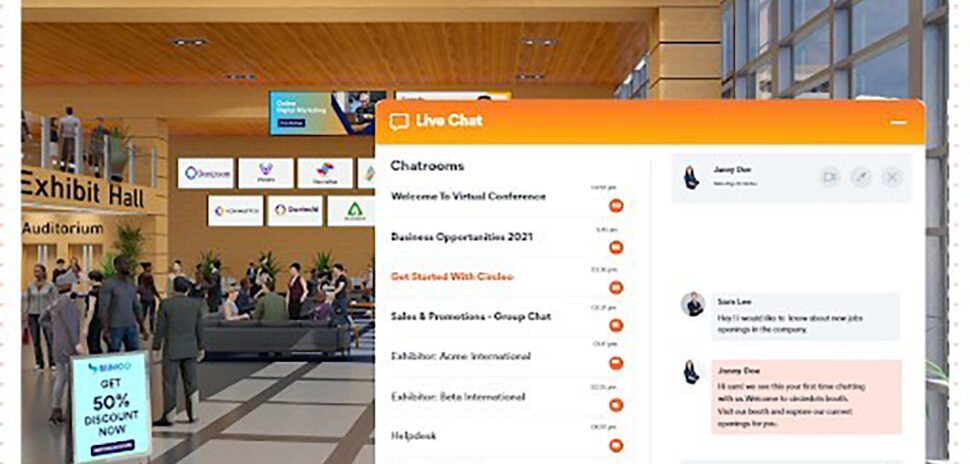Texas public school districts face a challenging path to bringing students back on campus as COVID-19 cases surge across the state just a month before the scheduled start to the 2020-21 academic year. Fortunately, there is a robust set of reopening playbooks for public schools, several of which were highlighted during an education-focused installment of the Dallas Regional Chamber’s “Responsible Return to Work” virtual series.
The event, presented in partnership with the North Texas Commission and Raise Your Hand Texas, featured speakers from Boy Scouts of America Circle Ten Council, DART, NEC Corporation of America, Target, and the YMCA. The panelists provided regional school districts with key lessons learned from summer camps, office re-openings, and modified operations throughout the pandemic.
The learnings from summer camps, which have served as an informal pilot for bringing children together amid COVID-19, may be most relevant for school districts as they prepare for the fall.
Tony Shuman, CEO of YMCA of Metropolitan Fort Worth, has led the organization’s efforts to overhaul its summer programming to adhere to new public health guidelines. One program component that required significant restructuring was student drop-off and pick-up. Prior to the pandemic, Shuman likened the YMCA’s process to a “free-for-all.” Now, students receive temperature checks and parents complete a health questionnaire upon arrival. Once cleared, students visit a sanitization station before joining their camp counselor and small group.
The YMCA introduced additional practices to prevent potential transmission of COVID-19 during camp. For example, students and staff take regular sanitization breaks, and students are required to bring their own supplies, such as pencils and crayons. Further, co-mingling between students from different small groups is prohibited, and large group activities have been eliminated entirely.
The new protocols, although crucial for student and staff safety, have come with their challenges. Personnel needs, for instance, are much greater in light of the lower student-to-staff ratios required to keep small groups manageable and guide students through morning drop-off.
Some of the difficulties the YMCA encountered could have been mitigated by more thoroughly preparing students for what to expect before the first day of camp, Shuman noted. While campers were briefed through a series of short videos, Shuman encouraged school districts to create more detailed guidance outlining expectations, particularly those related to social distancing, for students and their families prior to the start of the fall semester.
School districts may further be able to limit complications by practicing their plan before students arrive back on campus.
“We had to practice what we were going to do when it came to the dining halls, or the bathrooms, or check-in and check-out… All those types of questions that parents are most worried about,” said Michael Prachar, Director of Support Services for the Boy Scouts of America Circle Ten Council.
Prachar and his team walked through their plans prior to the first day of camp, with some staff standing in as students—an exercise Prachar calls “management by walking around.” This process helped the Boy Scouts iron out small but important details across various procedures and improve the student experience before campers arrived.
Details on the Boy Scouts’ planning are available in a comprehensive, 42-page document that outlines every step the organization took to prepare for its summer camps. That guide also highlights revised food service procedures, an area of particular concern for school districts this fall and one Prachar considered a potential hotspot at camp.
Summer camps, however, have the benefit of keeping much of their activity outdoors where the coronavirus is harder to spread. Public schools, on the other hand, are largely inside. This fact, said Carter Holston, Director of Real Estate and Community Relations for NEC Corporation of America, creates challenges for schools in preventing the spread of droplets and potential airborne transmission. As a result, masking, social distancing, and access control will be crucial elements of a successful reopening for districts.
“You need to know exactly who is in each area, all day long, in case there is an event so you can inform others [that were] in close proximity,” said Holston, discussing the importance of access control. “In Texas, we hold the door open for one another to be courteous, but we can’t do that any longer. We need everyone badging in so that we know who’s in and at what times.”
In addition, Tracey Hester, Director of Government Relations for Target, presented the corporation’s SAFE Retail guidebook to help schools solve for high foot traffic scenarios. Carol Wise, Chief Operating Officer of DART, shared the transit agency’s efforts to protect passengers amid the pandemic, learnings school districts may apply to their own buses.
A version of this story first appeared on the Dallas Regional Chamber site. Dallas Innovates is a collaboration of D Magazine Partners and the Dallas Regional Chamber.
![]()
Get on the list.
Dallas Innovates, every day.
Sign up to keep your eye on what’s new and next in Dallas-Fort Worth, every day.

































































